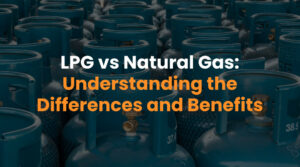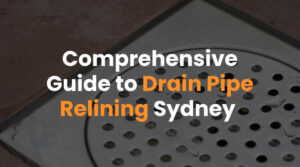Are you a Sydney resident, specifically from the vibrant Marrickville suburb, dealing with relentless plumbing problems? The beautiful period architecture of our homes often comes with an unforeseen flip side – age-old plumbing issues. Whether it’s a persistent dripping tap that’s disrupting your tranquil evenings or a stubborn sink refusing to drain, rest assured you’re not alone in this battle.
The good news? Every question you have, every solution you’ve been trying to seek, we’ve got you covered. Today, we are addressing your most pressing plumbing questions, tailor-made to tackle the unique challenges we face here in Marrickville, Sydney.
General Plumbing
1. Why do my pipes make a rattling noise?
This phenomenon, often referred to as “water hammer,” typically happens when water flow is abruptly halted, causing shockwaves that lead to pipes shaking or banging. It can be mitigated by installing water hammer arrestors, a task best handled by a licensed plumber.
2. What should I do in case of a plumbing emergency?
Firstly, turn off the water supply to halt any flooding. For a local shut-off, you will find the valve under a sink or beside a toilet. For a house-wide issue, locate the main shut-off valve for your home. Then, call a professional plumber immediately.
3. How often should I have my plumbing system inspected?
A full plumbing system inspection is advisable every two years. However, if you live in an older home or if you’ve been experiencing frequent plumbing issues, annual inspections can help prevent potential problems before they become major repairs.
4. Why does my water have a strange colour or smell?
This could be due to issues with your hot water heater or substances in your pipes. Brown water, for instance, may indicate rust in the pipes. If you notice an odd smell or colour, it’s a good idea to have your water tested and your plumbing system checked by a professional.
Blocked Drains
1. How can I prevent drain blockages?
Regular drain maintenance is crucial. Keep an eye on what goes down your drain; cooking fats, coffee grounds, hair, and certain types of food waste can clog up your pipes. For outdoor drains, frequent cleaning of gutters and installation of drain guards can prevent obstruction from fallen leaves.
2. I’ve tried a plunger, but my drain is still blocked. What’s next?
If a plunger doesn’t do the trick, it might be time to call a professional. Persistent blockages could indicate a more serious issue like tree root intrusion or a collapsed pipe.
3. Why do my drains keep getting blocked?
Persistent drain blockages can be a sign of more serious issues, such as tree root intrusion or a misaligned pipe. A CCTV drain inspection can identify the cause and location of the problem.
4. Are chemical drain cleaners safe to use?
While they may provide a quick fix for minor clogs, chemical drain cleaners can damage pipes, especially older ones. They’re also harmful to the environment. A safer alternative is to use a plunger or a plumber’s snake, or better yet, call a professional.
Hot Water Systems
1. Why isn’t my water heater producing hot water?
Several issues could cause a lack of hot water. It might be as simple as a tripped circuit breaker or a malfunctioning thermostat. More complex problems could be a broken heating element or a tank that’s too small for your needs. A professional plumber can identify and solve these issues.
2. How often should I have my hot water system serviced?
To keep your hot water system in optimal condition, we recommend annual servicing. Regular checks can prolong the life of your system, ensure safety, and maintain efficiency.
3. How can I improve the efficiency of my hot water system?
Regular maintenance, including flushing the system to remove sediment, is key. Insulating your hot water tank and pipes can also conserve heat and reduce costs. If your system is older, consider upgrading to a more efficient model.
4. What size hot water system do I need?
The ideal size depends on your household’s hot water usage. As a rule of thumb, a family of four would typically require a 150-200L system for continuous flow or a 250-315L system for a storage tank model. Your local plumber can provide specific advice based on your needs.
Gas Plumbing
1. I think I smell gas. What should I do?
If you smell gas in your home, immediately turn off your gas at the meter, open windows for ventilation, avoid igniting anything, and call a licensed gas plumber. Remember, safety first; gas leaks can be extremely dangerous.
2. Can I install a gas appliance myself?
In Australia, all gas fitting work, including the installation of appliances, must be performed by a licensed gas fitter. DIY gas installations can be dangerous and are also illegal, so always consult a professional.
Remember, while DIY solutions can occasionally fix minor issues, serious plumbing problems require a professional touch. Don’t hesitate to reach out to your local Marrickville plumber for any concerns you have about your plumbing systems. We’re here to help keep your home running smoothly and safely.
3. How do I maintain my gas appliances?
Regular professional inspections and servicing are important for safe operation. Check your appliances for any signs of damage or wear and tear regularly, and ensure that all vents are clear of debris to prevent carbon monoxide buildup.
4. Can I convert my electrical appliances to gas?
Yes, many electrical appliances can be converted to run-on gas, providing potential cost savings and environmental benefits. However, this requires professional installation to ensure safe and efficient operation.
In every case, if you’re experiencing issues with your plumbing, blocked drains, hot water systems, or gas plumbing, don’t hesitate to contact a professional. We’re here to provide you with safe and effective solutions to keep your Marrickville home running smoothly.








